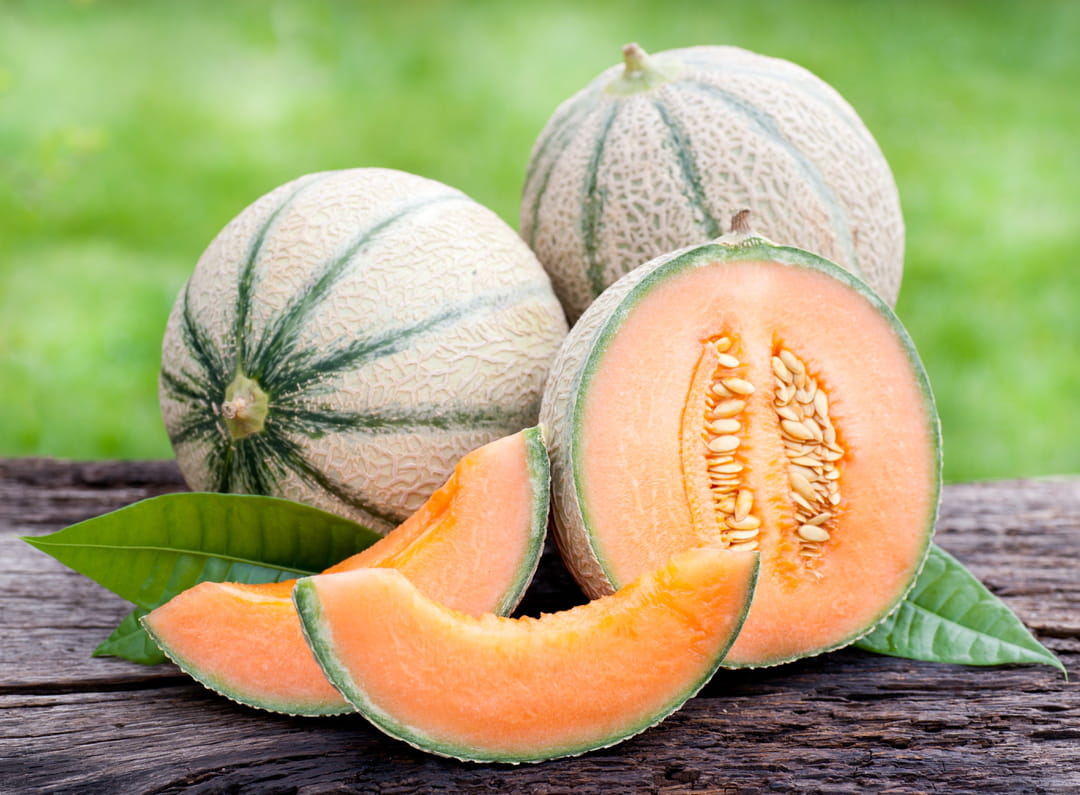Good for the skin, eyesight... What are the benefits of melon?

Summer is in full swing, and market stalls are overflowing with juicy, sweet melons. This refreshing fruit is universally acclaimed for its flavor, but what about its nutritional benefits? The first benefit of melon is arguably the most obvious: rich in water, it's a great ally for helping you stay hydrated.
It's therefore a good complement to drinking water every day, especially during periods of intense heat. It brings a little sweetness to the heart of summer, a point endorsed by nutritionist Jean-Michel Cohen. "Melon is one of the summer fruits to eat, it has many benefits," he confirms. "First of all, it's very rich in water, so it's a hydrating product."
But melon has many other tricks up its sleeve! It's packed with flavonoids, antioxidants that are thought to protect against certain cancers like breast and colon cancer. Melon is also an excellent source of vitamin A, essential for healthy skin and vision. "It's rich in vitamin A, which means it's carotenoids. So it's good for your skin, it's good for your twilight vision," explains Jean-Michel Cohen. This vitamin also participates in cell regeneration, helping to fight wrinkles, cellulite, and stretch marks. Finally, it strengthens the immune system.

Another plus: melon is a valuable aid against water retention and heavy legs. Its potassium, calcium, and other minerals help eliminate excess water and toxins. Its diuretic properties also contribute to kidney health. The potassium in melon also plays a role in regulating high blood pressure. Eating half a melon provides 20% of your recommended daily potassium intake!
And how much sugar is there? Is melon really that sweet and high in calories? No, with only 34 calories per 100g, melon is a low-calorie fruit, provided you know how to regulate your consumption. With a glycemic index of 65, melon remains within a reasonable range compared to other fruits. "It contains 8.5 grams of sugar per 100 grams, which isn't a lot; there are plenty of fruits that contain more than that," the nutritionist reassures.
It's still advisable to consume melon in moderation in cases of digestive problems or sensitive intestines. Is there any other downside? "The only drawback is that it's not very filling," explains Jean-Michel Cohen. The basic portion is 100 grams, which is a nice slice, but it won't be enough to make a meal, of course. It's therefore better to eat it with other products enjoyed in summer, such as a salad with a piece of mozzarella or feta cheese to provide calcium and obtain a light, refreshing and more satisfying summer meal. Melon therefore has almost everything going for it: "it's definitely one of the fruits to eat during this season," concludes Jean-Michel Cohen.
L'Internaute





